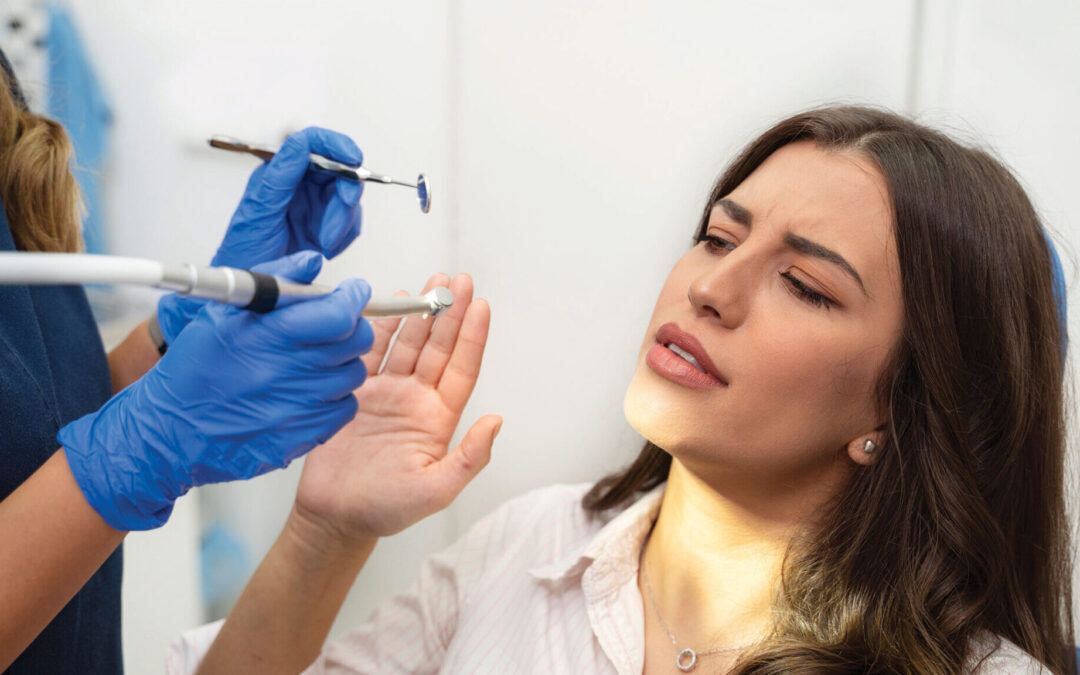Imagine this: you wake up in the morning, feeling refreshed and ready to take on the day. You brush your teeth, revealing a dazzling smile that instantly boosts your confidence. As you go about your day, you find yourself feeling more positive, more energized, and even more motivated. How is this possible? Well, it turns out that dental health plays a bigger role in our overall well-being than we may think.
In this blog post, we’ll explore the connection between dental health and mental health. We’ll delve into why poor dental health can lead to mental health problems and discuss some simple habits you can develop for good dental hygiene. Plus, if you’re worried about affording dental care, we’ll offer some suggestions on how to get the help you need.
So grab a cup of tea (or coffee!) and join us as we uncover the importance of dentally and mentally taking care of ourselves!
Dental health is important for overall health
When we think about our overall health, dental care might not be the first thing that comes to mind. But the truth is, maintaining good oral hygiene is crucial for our well-being in more ways than one.
First and foremost, dental health impacts our physical health. Poor oral hygiene can lead to gum disease, tooth decay, and even tooth loss. These issues not only cause pain and discomfort but can also affect our ability to eat nutritious foods properly. In turn, this can have a negative impact on our overall nutrition and weaken our immune system.
But it doesn’t stop there! The connection between dental health and mental health is also significant. Research has shown that poor oral health is associated with an increased risk of developing mental health problems such as depression and anxiety.
Think about it – when you’re dealing with persistent toothaches or embarrassing dental issues like crooked teeth or bad breath, it’s hard to feel confident and maintain a positive mindset. Our smile plays a big role in how we perceive ourselves and how others perceive us too.
Taking care of your dental health not only ensures stronger teeth and gums but also contributes to your overall well-being. So make sure you prioritize regular brushing, flossing, visiting your dentist regularly, and adopting other healthy habits like avoiding excessive sugar intake.
Remember: dentally sound means mentally sound too!
Poor dental health can lead to mental health problems
Poor dental health can have a significant impact on our mental well-being. It may seem surprising, but the state of our teeth and gums can influence how we feel about ourselves and how others perceive us. When we have dental issues such as tooth decay, gum disease, or missing teeth, it can lead to feelings of embarrassment and self-consciousness.
These negative emotions associated with poor dental health can affect our confidence levels and self-esteem. We might avoid social interactions or smile less because we are ashamed of our oral condition. This can result in feelings of isolation and even depression over time.
Furthermore, chronic oral pain caused by dental problems can also take a toll on our mental health. Constant discomfort not only affects our ability to eat properly but also interferes with sleep patterns, concentration levels, and overall quality of life.
Addressing these mental health implications requires taking steps towards improving dental hygiene habits. Regular brushing, flossing, and visiting the dentist for check-ups are essential for maintaining good oral health. Additionally, seeking professional help from cosmetic dentistry options like invisalign offers effective way to straighten teeth using clear aligners while boosting confidence.
It’s important to remember that everyone deserves access to proper dental care regardless of their financial situation. If you cannot afford regular visits to the dentist or necessary treatments, there are resources available that provide assistance. Dental clinics at community colleges often offer discounted services provided by supervised students or you may be eligible for government-funded programs designed to support those who cannot afford private dental care.
In conclusion (not concluding): Taking care of your dental health is crucial not only for your physical well-being but also for your mental well-being too! By prioritizing good oral hygiene habits and seeking appropriate treatment when needed – whether it’s through traditional dentistry or cosmetic procedures like Invisalign – you’re investing in yourself both dentally AND mentally! So don’t neglect your pearly whites; they can make a big difference in how you feel about yourself and how others perceive you
Good dental health habits to develop
Good dental health habits are essential for maintaining a healthy smile and overall well-being. Here are some simple yet effective habits you can develop to keep your teeth and gums in top shape.
Brushing your teeth at least twice a day is crucial. Use a soft-bristled toothbrush and fluoride toothpaste to gently clean all surfaces of your teeth. Don’t forget to brush along the gumline as well.
Next, flossing daily is just as important as brushing. Flossing helps remove plaque and food particles from between your teeth where a toothbrush can’t reach.
In addition to brushing and flossing, using mouthwash can provide additional protection against bacteria and freshen your breath. Look for an alcohol-free mouthwash that contains fluoride for optimal results.
Maintaining a balanced diet is also key to good dental health. Limit sugary snacks and drinks, which can contribute to tooth decay. Instead, opt for nutritious foods like fruits, vegetables, lean proteins, and dairy products that promote strong teeth.
Regular dental check-ups are vital too. Schedule visits with your dentist every six months for professional cleanings and examinations. This allows any potential issues to be detected early on before they become more serious problems.
Avoid bad oral habits such as smoking or chewing tobacco, which not only stain your teeth but also increase the risk of gum disease and oral cancer.
By incorporating these practices into your routine, you’ll be taking proactive steps towards maintaining excellent dental health!
How to get help if you can’t afford dental care
If you find yourself in a situation where you can’t afford dental care, don’t fret! There are options available to help you maintain good oral health without breaking the bank. Here are some suggestions on how to get the assistance you need:
1. Research low-cost or free dental clinics in your area. Many communities have programs that provide affordable or even no-cost dental services to those who qualify based on income.
2. Look into dental schools or teaching hospitals. These institutions often offer reduced rates for procedures performed by students under the supervision of experienced professionals.
3. Consider applying for government assistance programs such as Medicaid or CHIP (Children’s Health Insurance Program). These programs may cover certain dental treatments for eligible individuals and families.
4. Explore nonprofit organizations that specialize in providing free or discounted dental care to underserved populations.
5. Reach out to local charities and foundations that focus on healthcare access and ask if they have any resources available specifically for dental treatment.
Remember, it’s important not to neglect your oral health due to financial constraints. By taking proactive steps and seeking out available resources, you can still receive the necessary care for a healthy smile!
Conclusion
Taking care of your dental health is not just important for maintaining a bright and confident smile, but it also plays a crucial role in your overall well-being. Neglecting your dental hygiene can have serious consequences on both your physical and mental health.
Research has shown that poor oral health can contribute to various mental health problems such as anxiety, depression, and low self-esteem. By taking proactive measures to maintain good dental habits, you can significantly reduce the risk of developing these issues and improve your quality of life.
Developing good dental habits starts with regular brushing and flossing, along with routine visits to the dentist. Incorporating mouthwash into your daily routine can also help eliminate harmful bacteria and keep your breath fresh. Additionally, avoiding sugary foods and drinks can prevent tooth decay and cavities.
If you find yourself unable to afford proper dental care, don’t despair. There are options available for those in need. Many communities have free or low-cost clinics that provide basic dental services. You may also consider reaching out to local dental schools where students often offer discounted treatments under supervision.
Cosmetic dentistry can help you live more positively, it offers effective solutions for enhancing the appearance of teeth through procedures like Invisalign clear aligners. These advanced orthodontic treatments straighten teeth without the use of traditional metal braces, providing a discreet option for individuals seeking cosmetic improvements.
By investing in cosmetic dentistry procedures like Invisalign clear aligners or other treatments tailored to meet your specific needs, you can achieve a more positive outlook on life while enjoying improved oral health benefits.
Remember that maintaining good oral hygiene should be an integral part of our daily lives because it not only helps us maintain healthy smiles but also contributes towards our overall well-being – dentally as well as mentally! So take charge today and prioritize both aspects for a happier you!






